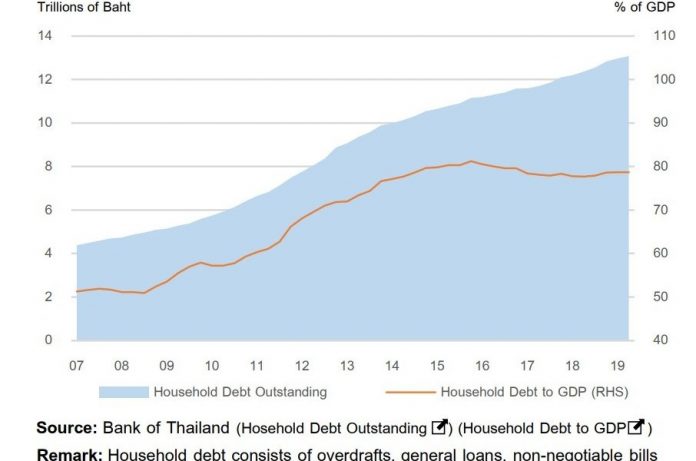The Bank of Thailand concluded that Thailand’s financial system remained sound, with commercial banks and insurance companies holding ample capital buffers.
However, there remained some pockets where risks could continue to build up, especially given the subdued growth outlook both at home and abroad and the prolonged low interest rate environment.
The Bank of Thailand announced the outcome of the joint meeting between the MPC and the FIPC on 16 December 2019 to assess risks to Thailand’s financial stability.
The committees highlighted four key issues as follows:
1. New residential mortgages posted a positive growth for the first nine months of 2019.
Following the implementation of the loan-to-value (LTV) measure, mortgages granted to first-time homebuyers (servicing one mortgage loan) stood unaffected and the LTV ratio of these loans stayed high. Meanwhile, speculation and imbalances in the real estate market showed signs of abating in line with the measure’s intended objectives.
(1) Financial institutions tightened their underwriting standards, as reflected by the decline in the average LTV ratio for second and subsequent mortgages.
(2) Speculative demand showed signs of cooling down, as seen from the decline in the number of commercial banks’ new mortgage accounts given as second or subsequent mortgages, with the decline in Q3 softening from that in Q2.

(3) Developers also delayed project launches, which would help facilitate a reduction in oversupply and allow the housing market to return to a balanced condition…


